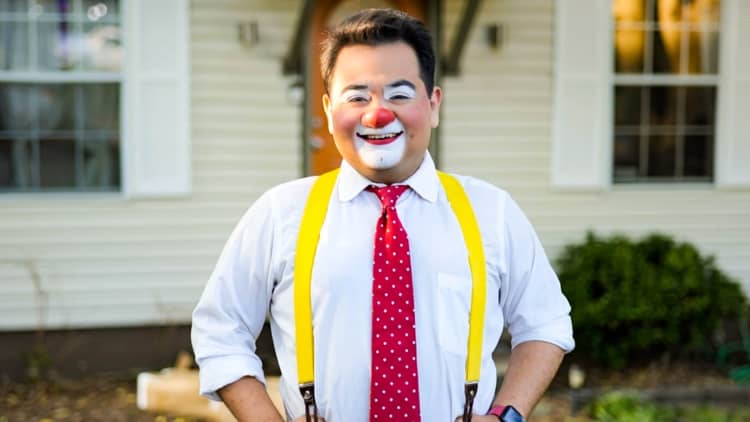The question of “what do I wear to a job interview” has always been tricky, but maybe never more so than in today’s evolving workplace.
Between remote work and a new generation of young professionals, many office dress codes have become more casual. But the formality of an interview adds some pressure to nailing a polished look.
The best way to figure out what to wear to an interview is to go directly to the source: Ask your recruiter, says Farah Sharghi, a recruiter who’s conducted more than 10,000 interviews at companies like Google, Lyft and TikTok.
“Every company has their own culture when it comes to clothing,” Sharghi tells CNBC Make It, and the recruiter working with you is your best source of knowledge from the inside.
For instance, when Sharghi worked for Lyft, she advised candidates that they would be coming into a space that was part-office and part-warehouse. Going into a warehouse space with concrete floors while wearing heels or opened-toed shoes could be a safety concern.
But not all dress code considerations are purely practical.
When in doubt, level up in formality (unless you’re told otherwise)
Additionally, there are social considerations at play. “First impressions are critical to the success of your candidacy, and [what you wear] is an easy one to either miss or get right,” says Teresa Freeman, an HR executive of 25 years and author of “Soft Skills I Learned the Hard Way.”
She says a general rule of thumb is to dress at the same level of formality of everyone else, if not one level higher, when going in for an interview.
If you’re going into a fairly conservative accounting firm, for example, you might wear a button-up, trousers and nice shoes, she says.
For a more casual environment, like a startup, Freeman says a collared shirt and khakis could be a good option. When in doubt, dress up a little more, Freeman says: “Even if if it’s a startup and you show up in a shirt and tie, I’m going to think, ‘Well, that person is making an effort.’ It’s not going to necessarily count you out.” If anything, “the one thing that I would say is gonna hurt you more is if you’re too casual.”
One exception, however, might be if your recruiter explicitly says to take the casual dress seriously.
If a recruiter gives you advice, best to take it.
Farah Sharghi
Recruiter
Sharghi remembers once flying out a candidate who came from General Motors to interview for a job at Lyft. Since jeans and hoodies were common at the tech company, she advised the candidate to come in a nice button-down shirt and jeans.
Instead, Sharghi says, “he shows up in a three-piece suit. And I looked at him and I said, ‘You look fabulous, I’m loving the suit. However, it’s a little more of a casual environment. I recommend, could you at least lose the tie?”
He responded he was comfortable and chose not to dress down; but after each round, each interviewer asked Sharghi why the candidate had come dressed so formally. He didn’t get the job for other reasons, Sharghi says, but “the fact that he actively ignored my guidance on how to dress, and how to prepare for the interview was evident by how he showed up to the interview.”
“If a recruiter gives you advice, best to take it,” she adds.
Check social media
If you’re unable to get more information about the dress code from your recruiter, Freeman says to leverage your network. Do you know other people, or a friend of a friend, at the company that you can ask?
An alternative: You might check the company’s social media handles to get visuals of what people wear at the office. Their company website might also have photos of people around the workplace.
What to wear (and not wear) to a virtual interview
Dress codes still apply even if you’re interviewing remotely, experts say.
Dress as if you were going in on-site — including the waist down, Freeman says. Doing so can put you in the right headspace to feel your best and project confidence.
Sharghi recommends wearing a color close to your face “that is flattering towards your complexion and something that you love to wear. If you’re confident wearing red, wear red; if you’re confident wearing blue, wear blue.”
Another pro tip: Some studies on color theory say the color blue evokes a stronger sense of trustworthiness, which may help you feel more at ease during a job interview, Sharghi adds.
Finally, she says, avoid loud jewelry or other accessories, like charm bracelets, that can interfere with your microphone.
Want to be smarter and more successful with your money, work & life? Sign up for our new newsletter!
Join the CNBC Work Summit on Dec. 6 to hear from leaders and experts, including Harvard professor Arthur C. Brooks, discuss how AI could transform the future of work. Register here today.
Check out: Workers overwhelmingly want a 4-day workweek—on one condition

